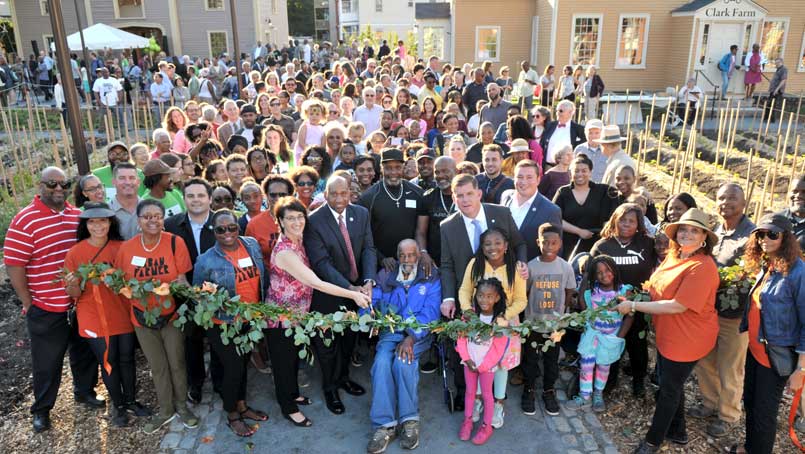
January 10, 2019 HBI in 2019: Staff Reflections and Projections for the New Year
With the completion of the Fowler Clark Epstein Farm, the start of construction at the Upham’s Corner Comfort Station, and the acquisition of St James African Orthodox Church, 2018 was an eventful and celebratory year for Historic Boston. As we survey the horizon of the new year, HBI’s staff reflects on 2018’s lessons and projects what 2019 will bring.
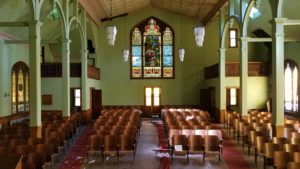
Shaurya Batra: St. James African Orthodox Church’s New Life Takes Shape
An impressive neighborhood advocacy campaign, followed by HBI’s purchase of the property, prevented the demolition of the 1910 St. James African Orthodox Church in 2018. HBI has stabilized the structure and is finalizing the project’s architecture and development team so that the site’s transformation can begin.
In 2019 the focus will shift to finalizing the mix of end uses for the church and its parking lot. HBI’s current plans for the property, although evolving, include creating a co-working space in the sanctuary and possibly the basement floor of the church as well. HBI is also considering converting the church basement for residential use. Further, HBI is planning to convert the parking lot into residential units as well. Naturally, the mix of market rate and affordability levels for the home ownership units.
Irrespective of the ultimate mix of uses that gets built at the site, St James AOC project will certainly help HBI create another blueprint for future preservation projects. HBI’s approach to preservation has been through re-positioning and rehabbing historic buildings with new revenue-generating uses as seen in the Fowler Clark Farm and the Upham’s Corner Comfort station. With the St James AOC project, HBI financing plans are slightly different: we plan to use the proceeds from the development of new residential units toward reducing the substantial gap in development costs for the rehabilitation project, effectively creating a cross subsidizing layer to the current preservation model. Certainly lots to look forward to in 2019!
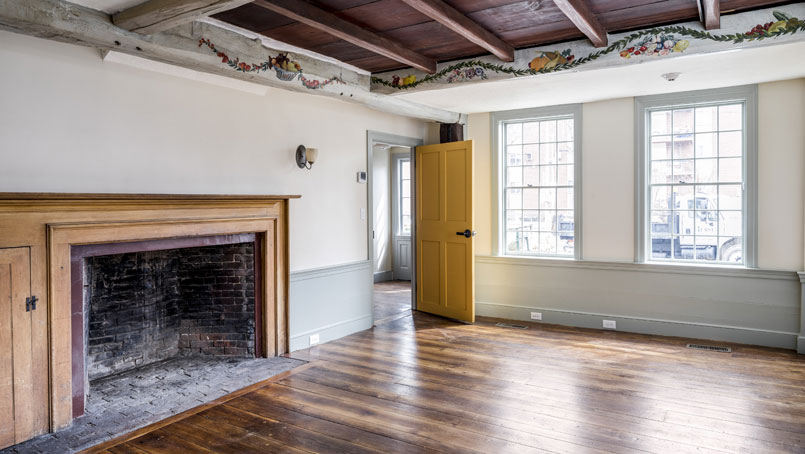
Kathy Kottaridis: Partnerships Harvested from Fowler Clark Epstein Farm
The Fowler Clark Epstein Farm’s renewal , guided by four non-profit partners –– HBI, the Urban Farming Institute of Boston, North Bennet Street School and The Trust for Public Land — was particularly complicated by the number of decision-makers, voices, and responsibilities. And yet, with patience, determination and hard work, the partnership generated a far better project than any one of us could have alone.
UFI’s occupancy of the farm was a game-changer for the preservation project, but it has also added new verve to the neighborhood; The Trust for Public Land’s extraordinary fundraising and advocacy for urban agriculture helped us build a top notch growing space that will be the inspiration for urban land in the years ahead; and North Bennet Street School’s Preservation Carpentry Department brought skilled labor and deep knowledge of very old buildings to the restoration of the farmhouse.
Everyone involved – – from Mattapan neighbors to partners to donors to contractors – gave back to the project so that it could be completed cost-effectively and at the highest quality. The Fowler Clark Epstein Farm was hard to do, but now that the project’s account books are closed and the property preserved, what lingers is the creativity, energy and goodwill of everyone involved.
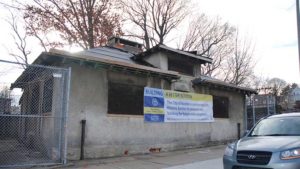
Lisa Lewis: Is that Coffee I Smell?
While we wait for the cold, windy, snowy weather to show up, construction at the Comfort Station is well under way. We are looking ahead with excitement to the arrival of spring and the long-awaited opening of Sip & Spoke Bike Kitchen.
We can’t wait to head over this spring to Upham’s Corner for a latte and gander at the bicycles and cycling paraphernalia Noah will have on offer (more on that to come). There will be two entrances to the shop/café, as there were formerly two entrances to accommodate the men’s and women’s bathrooms. For coffee, you’ll head to the right side, and if bike repairs or purchases are your goal, you’ll likely enter at the left. Inside, the space will be an open floor plan, so patrons can grab a coffee and wander over to look at new bikes, and those waiting for bike service can likewise relax in the café side. In warm weather, there will be a few tables in the side yard for enjoying the views or a stroll in the adjacent historic Dorchester North Burying Ground.
We’re grateful to Noah De Amor and The American City Coalition who have both been patient and committed partners to Historic Boston as the project fundraising at times felt stalled. We also can’t forget to say thanks to MJ Mawn’s construction crew, who are currently pulling on their long johns and climbing up on the roof to install new roof tiles.
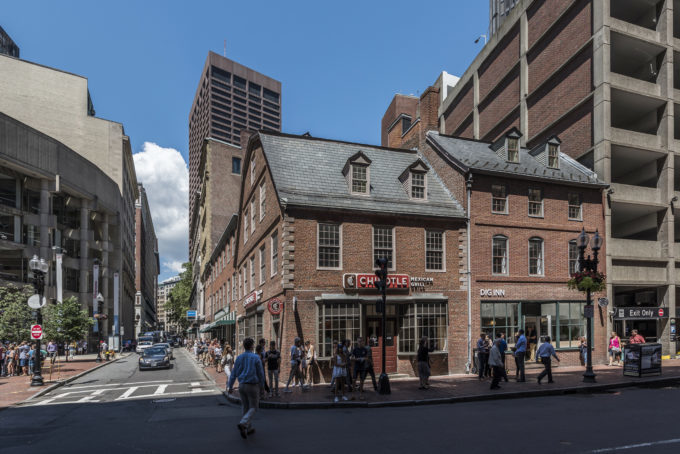
Gabrielle Chapman: Re-investing in Our Roots
This year, HBI celebrated the 300th Anniversary of the Old Corner Bookstore building. The building exists as a duality, remembering Boston’s past with original architectural details, while serving contemporary Bostonians with food services, law offices, and recreational activities. Boston’s oldest commercial building, the Old Corner Bookstore is most significant as the 19th century home to the famed literary publishers, Ticknor and Fields.
In honor of its 300th year, HBI hosted a special tribute to developer Anthony Pangaro in November which raised funds for a new program of preservation for the Bookstore building. In the book published for the event, “Tales of the Old Corner, Celebrating 300 Years”, author Susan Wilson captures the essence of the building’s history: “…so many people don’t know that they’re standing on a spot that was once home to radical Puritans, revolutionary publishers, commercial entrepreneurs, crispy sliced pizza…and a potential parking garage”. With plans for a new program of preservation that cares for the well-being of the structure and strengthens interpretation of the building’s history, 2019 promises to demonstrate HBI’s devotion to its mission of revitalizing historic buildings for sustainable, accessible uses.
Happy New Year!



